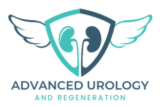
Testicular Cancer Treatment in Kolkata: Expert Care
Introduction
Testicular cancer is a serious condition that requires immediate and specialized medical attention. Dr. Bivek Kumar, a renowned urologist in Kolkata, offers comprehensive testicular cancer treatment, combining advanced medical techniques with compassionate care. This page provides detailed information about testicular cancer, its symptoms, diagnosis, and the treatment options available at Dr. Kumar’s clinic.
What is Testicular Cancer?
Testicular cancer is a type of cancer that occurs in the testicles, which are part of the male reproductive system. It is relatively rare compared to other cancers, but it is the most common cancer in young men aged 15 to 35. The testicles are responsible for producing male hormones and sperm, and cancer in this area can significantly impact fertility and hormonal balance.
Importance of Early Detection
Early detection of testicular cancer greatly increases the chances of successful treatment and cure. Testicular cancer is highly treatable, especially when caught early. Men should perform regular self-examinations to check for any unusual lumps or changes in the testicles and seek medical advice promptly if they notice anything suspicious.
Types and Stages of Testicular Cancer
Types of Testicular Cancer
- Seminomas: These cancers grow slowly and are generally confined to the testicles, but they can spread to lymph nodes. Seminomas are sensitive to radiation therapy.
- Non-seminomas: These cancers grow more rapidly and are more likely to spread to other parts of the body. They include various types such as embryonal carcinoma, yolk sac tumor, choriocarcinoma, and teratoma.
Staging of Testicular Cancer
- Stage I: Cancer is limited to the testicle.
- Stage II: Cancer has spread to lymph nodes in the abdomen.
- Stage III: Cancer has spread to other parts of the body, such as the lungs or liver.
Causes of Testicular Cancer
Genetic Factors: A family history of testicular cancer can increase the risk of developing the disease. Genetic conditions such as Klinefelter syndrome also contribute to the risk.
Undescended Testicle (Cryptorchidism): Men who have had an undescended testicle are at a higher risk of developing testicular cancer. This risk persists even if surgery has been performed to correct the condition.
HIV Infection: Men with HIV infection have a higher risk of testicular cancer. The virus affects the immune system, making it harder to fight off cancerous changes.
Previous Testicular Cancer: Men who have had cancer in one testicle are at an increased risk of developing it in the other testicle.
Other Risk Factors: Factors such as age (most common between 15 and 35), race (more common in Caucasians), and body size (tall men may have a slightly higher risk) can also contribute to the likelihood of developing testicular cancer.

Symptoms of Testicular Cancer
Common symptoms include:
- A lump or swelling in the testicle
- Pain or discomfort in the scrotum or testicle
- A feeling of heaviness in the scrotum
- Dull ache in the lower abdomen or groin
- Sudden fluid collection in the scrotum
Early detection is crucial, so it’s important to see a urologist like Dr. Bivek Kumar if you experience any of these symptoms.
Diagnosis of Testicular Cancer
Diagnosis involves several steps:
- Physical Examination: The doctor will check for lumps or abnormalities in the testicles.
- Ultrasound: This imaging test helps to determine the nature of any testicular lump.
- Blood Tests: Certain markers (AFP, HCG, LDH) in the blood can indicate testicular cancer.
- Biopsy: In rare cases, a biopsy may be needed to confirm the diagnosis.
Treatment Options for Testicular Cancer
Dr. Bivek Kumar offers a range of treatment options tailored to the specific type and stage of cancer:
Surgery
- Orchiectomy: The primary treatment for testicular cancer, involving the removal of the affected testicle.
- Retroperitoneal Lymph Node Dissection (RPLND): Removal of lymph nodes to prevent the spread of cancer.
Radiation Therapy Primarily used for seminomas, radiation therapy involves using high-energy beams to target and kill cancer cells.
Chemotherapy: Used for both seminomas and non-seminomas, chemotherapy involves using drugs to kill cancer cells. It can be used after surgery to prevent recurrence or to treat advanced cancer.
Surveillance: In some cases, especially in early-stage cancer, a watchful waiting approach (surveillance) may be recommended.
Why Choose Dr. Bivek Kumar for Testicular Cancer Treatment in Kolkata?
Dr. Bivek Kumar is a highly experienced urologist specializing in testicular cancer treatment. Here’s why patients trust him with their care:
- Expertise: Extensive experience in treating testicular cancer with high success rates.
- Advanced Techniques: Utilizes the latest medical technology and treatment protocols.
- Comprehensive Care: Offers a holistic approach to treatment, including psychological support and follow-up care.
- Patient-Centered Approach: Focuses on individualized care plans tailored to each patient’s needs.
Support and Aftercare
Post-Treatment Care and Follow-Up
- Monitoring for Recurrence: Regular follow-up visits are essential to monitor for any signs of cancer recurrence. This may include physical exams, blood tests, and imaging tests.
- Managing Side Effects: Address any side effects of treatment, such as fatigue, nausea, and emotional distress, with the help of healthcare professionals.
Psychological and Emotional Support
- Counseling Services: Professional counseling can help patients cope with the emotional impact of cancer diagnosis and treatment.
- Support Groups in Kolkata: Joining support groups can provide a sense of community and shared experiences, helping patients and their families navigate the journey.
Lifestyle and Prevention
Lifestyle Changes to Reduce Risk
- Maintain a healthy diet and regular exercise routine.
- Avoid exposure to harmful chemicals and substances.
- Practice safe sexual habits to reduce the risk of infections that could potentially lead to cancer.
Regular Check-ups and Self-Examinations
- Perform monthly self-examinations to check for any unusual changes in the testicles.
- Schedule regular check-ups with a healthcare provider to ensure early detection of any issues.
Importance of Awareness and Education
- Increase public awareness about testicular cancer through education campaigns.
- Encourage men to seek medical advice promptly if they notice any symptoms.
Book an Appointment
If you are experiencing any symptoms or need expert advice, don’t hesitate to seek medical help. Book an appointment with leading specialists in Kolkata for a comprehensive evaluation and personalized treatment plan. Early detection and timely treatment are crucial for the best outcomes.
Frequently Asked Questions (FAQs)
The first signs often include a lump or swelling in the testicle, a feeling of heaviness in the scrotum, or discomfort in the lower abdomen or groin. It is essential to see a doctor if you notice any of these symptoms.
Diagnosis typically involves a physical examination, ultrasound, and blood tests to check for tumor markers. In some cases, a biopsy may be performed to confirm the diagnosis.
Yes, testicular cancer is highly treatable, especially when detected early. Treatment options include surgery, radiation therapy, chemotherapy, and targeted therapy.
Treatment for testicular cancer can affect fertility, but many men are still able to father children after treatment. Discuss fertility preservation options, such as sperm banking, with your doctor before starting treatment.
Recovery time varies depending on the type of surgery and the individual. Generally, most men can return to normal activities within a few weeks after an orchiectomy. More extensive surgeries like RPLND may require a longer recovery period.

